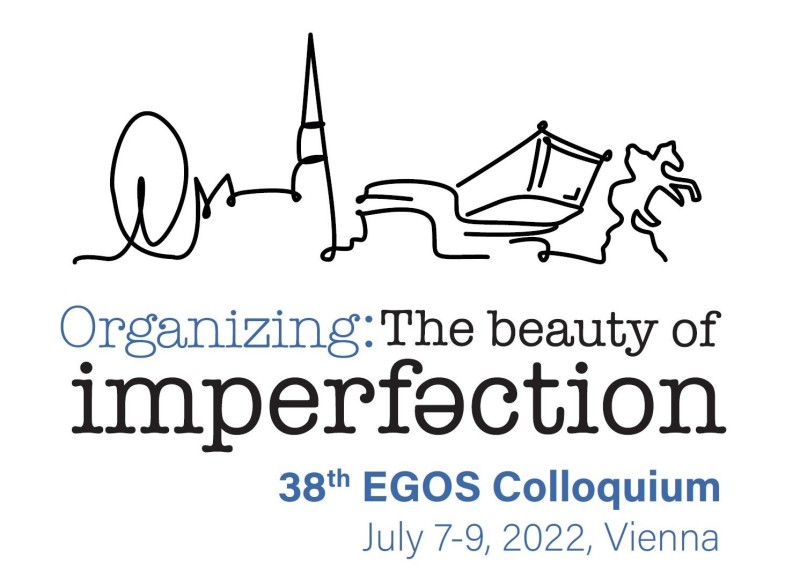PDW 08: Organization Studies in the Anthropocene: System Change, Not Climate Change
Call for Applications
Facilitators:
Zlatko Bodrožić, University of
Leeds, United Kingdom
Steffen Boehm, University of Exeter, United Kingdom
Bobby Banerjee, City, University of London, United Kingdom
Daniel
Nyberg, University of Newcastle, Australia
Ana Maria Peredo, University of Victoria,
Canada
Elke Schüßler, Johannes Kepler University Linz, Austria [tbc]
Christopher Wright, University of Sydney, Australia
Charlene
Zietsma, Pennsylvania State University, USA [tbc]
Purpose
This half-day PDW is part of a program
of activities organized by the EGOS Standing Working Group (SWG) 15 “Organization
Studies in the Anthropocene: System Change, Not Climate Change”. The goal of the PDW is to help scholars develop the conceptual
and methodological tools we need to understand the system-level challenges posed to business and society in addressing the
climate emergency and other environmental crises of the Anthropocene. Papers that are more developed will be discussed in
the SWG’s subtheme program, while this PDW aims to help scholars with papers and research projects at a less advanced stage.
It is open to scholars at any career stage – doctoral students as well as junior and senior faculty – who want to discuss
their project ideas with other scholars who are working in this arena and who can function as “mentors.”
The
rationale for the PDW can be summarized in three points:
- Recent research results tell us we have only a decade until self-reinforcing feedback loops and cumulative effects bring us to various tipping points in planetary systems and to the eventual collapse of civilizations as we know them (Aengenheyster et al., 2018; IPPC, 2018; Steffen et al., 2015). Moreover, the climate emergency is part of a wider environmental emergency associated with (among other risky and accelerating changes) significant disruption of the nitrogen cycle and massive loss of biodiversity (Steffen et al., 2015).
- To date, the bulk of organization and management scholarship on environmental issues has been focused on changes in firm-level and individual-level behavior. Climate change and the other threats to environmental sustainability that we see today certainly pose challenges for individual organizations, and addressing these threats will require changes to individual behavior; but the climate change emergency cannot plausibly be overcome by the action of individual organizations and individual actors alone (see similar critiques offered by Banerjee, 2011, 2012; Jermier et al., 2006; Wittneben et al., 2012). We need action by governments and supra-national inter-government agencies. Our PDW aims to stimulate scholarship on the challenges and opportunities at that system level.
- To understand and respond to the climate emergency, we need to focus on the political-economic-cultural system within which firms and individuals operate – on how this system can be mobilized to respond to the environmental challenge, on the impediments to such a mobilization, and how these impediments can be overcome. Such research will require a broadening of our intellectual resources. Where our field has in the past benefitted from engagement with contiguous disciplines like psychology, economics, and sociology, the environmental crisis demands that we further broaden our vision and engage with environmental philosophy, environmental science, political science, political ecology, public policy, as well as various heterodox schools of political economy.
Format
The PDW will start with a brief introduction to the
background and aims of the event by the organizers and introductions of mentors and participants.
We will
then have two successive rounds of small-group discussion, where each participant will be teamed up with two others and a
mentor to explore how their project could be advanced.
The following segment will have some of the mentors
on a panel reflecting on the main themes that emerged in their discussions. Discussion will then broaden to the whole group.
Application
Please submit – via the EGOS website – by April 30, 2022 a single application document (.docx or .pdf file) that contains the following mandatory sections:
- On the first page: name + contact details, including title, postal address, e-mail address, phone number, and a personal website if that is available.
- An outline of the paper or research project you want to discuss.
References
- Aengenheyster, M., Feng, Q.Y., van der Ploeg, F., & Dijkstra, H.A. (2018): “The point of no return for climate action: Effects of climate uncertainty and risk tolerance.” Earth System Dynamics, 9 (3), 1085–1095.
- Banerjee, S.B. (2011): “Embedding Sustainability Across the Organization: A Critical Perspective.” Academy of Management Learning & Education, 10 (4), 719–731.
- Banerjee, S.B. (2012): “A Climate for Change? Critical Reflections on the Durban United Nations Climate Change Conference.” Organization Studies, 33 (12), 1761–1786.
- IPCC (2018): Global Warming of 1.5 °C. An IPCC special report on the impacts of global warming of 1.5 °C above pre-industrial levels and related global greenhouse gas emission pathways, in the context of strengthening the global response to the threat of climate change, sustainable development, and efforts to eradicate poverty. Intergovernmental Panel on Climate Change; https://www.ipcc.ch/sr15/
- Jermier, J.M., Forbes, L.C., Benn, S., & Orsato, R. (2006): “The new corporate environmentalism and green politics.” In: S. Clegg, C. Hardy, T. Lawrence & W. Nord (eds.): Handbook of Organizational Studies. London: SAGE Publications, 618–650.
- Steffen, W., Hughes, L., & Pearce, A. (2015): Climate Change 2015: Growing Risks, Critical Choices. Climate Council of Australia; https://www.climatecouncil.org.au/resources/climate-change-2015-growing-risks-critical-choices/
- Wittneben, B.B.F., Okereke, C., Banerjee, S.B., & Levy, D.L. (2012): “Climate Change and the Emergence of New Organizational Landscapes.” Organization Studies, 33 (11), 1431–1450.


